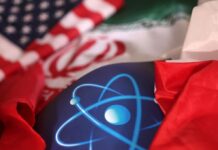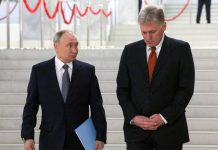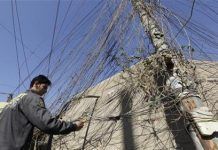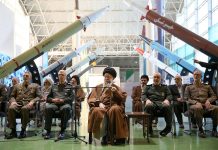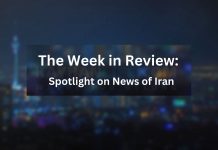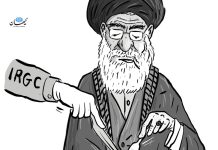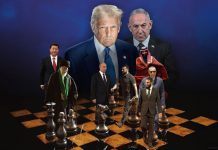By Ahmad Rafat
President Donald Trump of the United States and his advisors have consistently expressed their intention to engage in negotiations with the Islamic Republic of Iran and pressure Tehran’s leadership into altering its behavior. Iranian officials have also stated their willingness to negotiate with the U.S.
This was highlighted by Mohammad Javad Zarif, the former Iranian foreign minister and current Vice President for Strategic Affairs, during the annual meeting of the World Economic Forum (WEF) in Davos, Switzerland and was further emphasized by Iran’s Foreign Minister Abbas Araghchi in a recent interview with Sky News.
Iran’s Supreme Leader Ali Khamenei, who has long been staunchly against negotiating with the U.S., shifted his stance in a recent meeting with government and military officials.
While discussing talks with the U.S., Khamenei said: “We must open our eyes and be aware of who we are dealing with, making deals, and talking to.” Many have interpreted this statement as a signal that negotiations with Trump’s administration could be possible if the Islamic Republic’s red lines are respected.
Informal negotiations began after Trump’s victory in the November elections and before his return to the White House on Jan. 20.
Elon Musk, the owner of X (formerly Twitter), Tesla, and Starlink satellites, had at least one meeting with Amir Saeed Iravani, the representative of the Islamic Republic at the United Nations, at a hotel in New York. Some sources mentioned several meetings between them.
In December, representatives from Trump’s team met with Islamic Republic representatives in Muscat, Oman, although the details of these meetings remain unknown.
Recently, signals have emerged that could be interpreted as symbolic gestures to facilitate direct negotiations between Tehran and Washington.
For years, visitors to the Iranian Presidential Complex in Tehran had to walk over a painted American flag on the ground, essentially stepping on it. This painting was unexpectedly removed.
A few days later, in the last week of January 2025, during the Universal Periodic Review (UPR) of human rights at the UN’s European Headquarters, the U.S. representative did not take the floor despite having registered to speak. This was in stark contrast to previous UPR sessions, where the U.S. had always been one of the most vocal critics of the Islamic Republic.
The West Must Not ‘Bank on the Iranian Regime,’ Warns Renowned Journalist Amir Taheri
This silence caught many off guard and raised concerns among others.
The UPR, a mechanism of the UN Human Rights Council (UNHRC), was established following the UN’s 2005 reform process. It periodically assesses the human rights performance of all 193 UN Member States, as mandated by the UN General Assembly resolution 60/25 on April 3, 2006.
The departure of Brian Hook, who served as U.S. Special Representative for Iran during Trump’s first term and was a hawkish adviser who supported maximum sanctions on the Islamic Republic, is seen as a sign that the new U.S. administration is preparing to engage in negotiations with Tehran. Hook managed Trump’s transition team until his inauguration on Jan 20.
This shift is further indicated by the removal of security details for John Bolton, former U.S. ambassador to the UN, and Mike Pompeo, the former Secretary of State. The FBI has accused Iran of plotting to assassinate these two former officials.
Pompeo was Secretary of State during the 2020 U.S. drone strike on Baghdad International Airport that killed Lieutenant General Ghasem Soleimani, the former commander of the Islamic Revolutionary Guards Corps Qods Force (IRGC-QF).
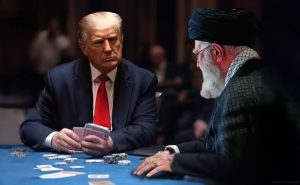
A seasoned diplomat from the Islamic Republic, who previously served as an ambassador to several European nations, told Kayhan Life: “In Khamenei’s circle, his advisors are concocting a plan that is expected to be taken as a ‘poison chalice’ by the leader if talks with Trump begin.”
“The Supreme Leader’s office has instructed the government to ease tensions with the U.S. to create the conditions for possible negotiations,” the diplomat explained. “The Islamic Republic still holds leverage at the negotiating table with the U.S., though it is weaker than a year ago.”
“Tehran has reportedly instructed all Iran-backed armed groups in Arab countries to avoid any military action against U.S. forces and interests for the time being,” the diplomat added.
In any negotiation, each participant has their own set of clear limits for maximum and minimum demands. For the Islamic Republic, the strongest card it holds is its nuclear program, a key issue not only for Israel and regional players but also for the U.S. and Western countries.
Another important card, though somewhat limited in impact, are its drone and missile programs. While these may not pose a significant threat to nations with advanced defense systems, they have shown their destructive potential, particularly in the ongoing conflict with Ukraine, where they have caused significant damage.
The Islamic Republic’s severely weakened card is the Axis of Resistance, an informal coalition of Iran-backed militias and political groups across the Middle East, initially organized by the late General Soleimani. Iran can still play this card.
According to research from a Tel Aviv University think tank, the Islamic Republic is working to rebuild the Axis of Resistance, though financial challenges have significantly hindered its progress.
In this context, some Israeli analysts argue that negotiations resulting in the lifting of even some sanctions would help revive the Axis of Resistance, making military strikes on Iran’s nuclear program a more logical choice than talks aimed at suspending it.
The shift in the U.S.’s stance is impossible for European Union countries to ignore.
During Trump’s first term, he imposed strict sanctions on Iran following the U.S.’s unilateral withdrawal from the Joint Comprehensive Plan of Action (JCPOA), also known as the Iran nuclear deal, in May 2018 — a move that was vehemently opposed by European nations.
By contrast, these same European countries now not only oppose the lifting of U.S. sanctions but also advocate for the reinstatement of international sanctions through the “snapback mechanism” outlined in the agreement before the JCPOA’s sunset clause expires in mid-October this year.
The JCPOA and UN Security Council Resolution 2231, which endorsed the nuclear deal, include “sunset clauses” that set expiration dates on certain restrictions. The snapback mechanism would allow the UN Security Council to automatically reinstate international sanctions with no need for another vote, potentially undoing the JCPOA and risking further international isolation for Iran.
Europe is growing frustrated with the lack of progress in negotiations with the Islamic Republic. It wants to resolve the issue to prevent further instability in the Middle East and block Iran from acquiring nuclear weapons, ultimately forcing Khamenei to back down.
Meanwhile, Trump’s administration comes to the table with two major cards. The most significant is the potential lifting of economic sanctions, and the second card, which is possibly even more crucial to Khamenei, is a U.S. assurance that it will prevent Israel from launching a military strike on Iran.
Within the current U.S. administration, many oppose any Israeli military action against Iran, and Trump himself has consistently expressed a preference for diplomacy over conflict. The Islamic Republic is also seeking another key guarantee for its survival: a U.S. pledge not to pursue regime change in Iran.
Regime Change Is Only Solution For Iran, Say DC Conference Speakers

